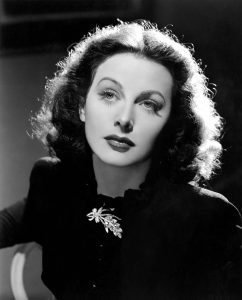“I have 49 sisters whom I love and I’ve developed unique relationships with each of them,” says Lily Collins, a Year 12 student at Wenona on Sydney’s Lower North Shore.
Lily arrived at Wenona from Scone in the Upper Hunter Valley two years ago. Close quarters living came as a shock at first, she says: “I felt like I was constantly stimulated with people always around and after my first term in boarding I was exhausted.”
But as strangers became friends, Lily came to realise that she loves

communal living. Being surrounded by girls who know and care for her is a great source of support and the best aspect of boarding is that “there is always someone to talk to when you’re feeling a bit sad.”
With new friends, come new experiences. Getting to know her extended boarding family has been eye-opening, Lily says.
“Hearing their life stories and perspectives really challenged my initial way of thinking when I started at Wenona and helped me grow as an individual.”
Flourishing through friendship is a common theme at Wenona with fellow Year 12 student Charlotte Doughty reporting a similar experience.
A day girl since Year 5, Charlotte says she was immediately won over by Wenona’s special spirit.
“From the first day I started, I fell in love with the school and the girls,” she says. “There’s something within our community, which I believe is really quite unique, that has really influenced me.”
Charlotte says Wenona has made her a more “positive and spirited” person thanks to the wonderful relationships she’s formed there and the school community’s exuberant compassion.
“A couple of years ago when Dr Scott had a health scare, our entire school came together to make a music video for one of her favourite songs and theme from the previous year, Brave. Everything else seemed insignificant, while we all banded together to sing for our principal to express our love and hope for her.”
Both girls nominate the school’s Renaissance Studies class as their favourite subject. Developed to encourage critical thinking, the course sees students consider a range of ethical, political and religious matters as they pertain to contemporary life.
Thinking deeply about global issues and questioning their own beliefs is surprisingly exhilarating, the girls find. “It’s a fantastic opportunity to engage with life beyond school in a situation where we are treated and challenged as adults,” Charlotte says.
Studying different belief systems is fascinating, Lily says, and considering one’s own problems in a global context, helps to “put your stress or fears in perspective”.
Wenona’s focus on the bigger picture is seen throughout the school, Lily says. From teachers urging students to read newspapers on a daily basis to the varied backgrounds of her fellow boarders, “everything contributed to my increasing awareness of the world around me and now I love to know what is playing out on the world stage, actively making myself aware of global events so I can engage with the other girls on a different level than just social conversations,” she says.
Next year, Lily is looking forward to studying a Bachelor of Science degree while Charlotte thinks she may take a gap year to travel and do volunteer work overseas. On her return, she hopes to study Economics or International Relations at university with the ultimate goal of working toward the betterment of society.
“I’ve always been interested in International Relations,” Charlotte says. “I believe it could lead me into a place that I find interesting and where I can make a meaningful contribution through my work.”
Spoken like a true Renaissance woman.
